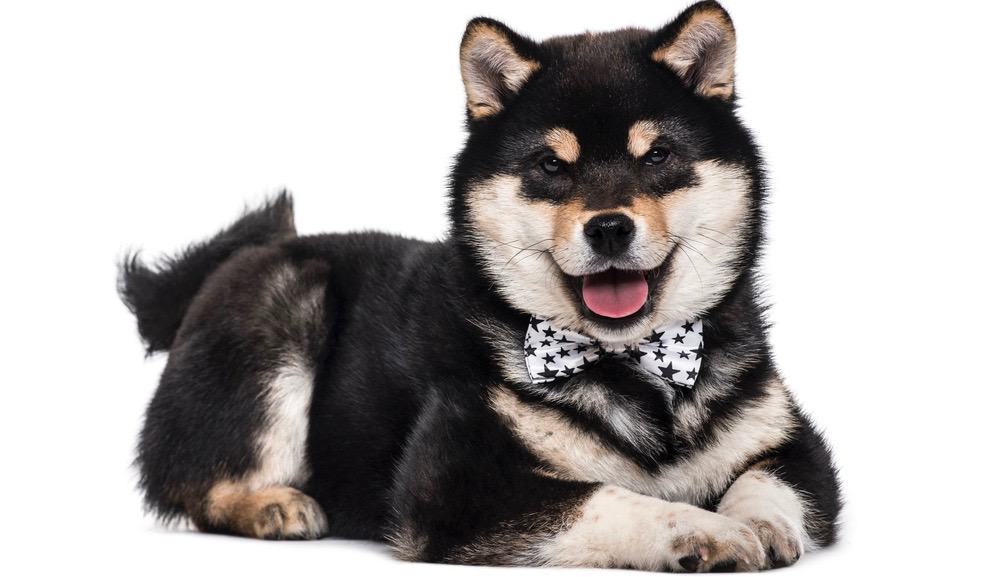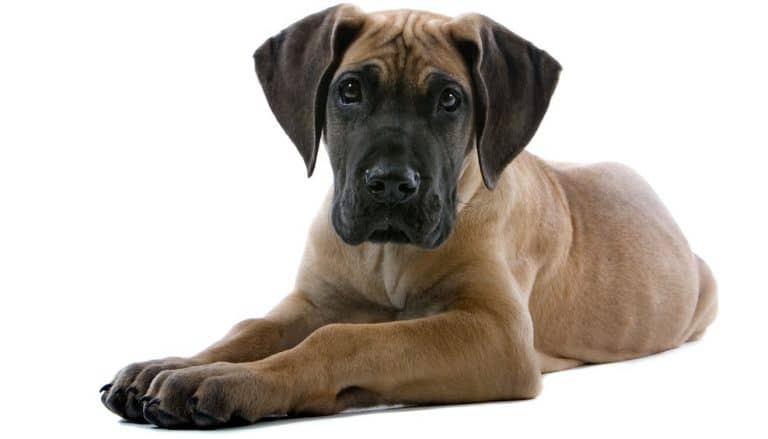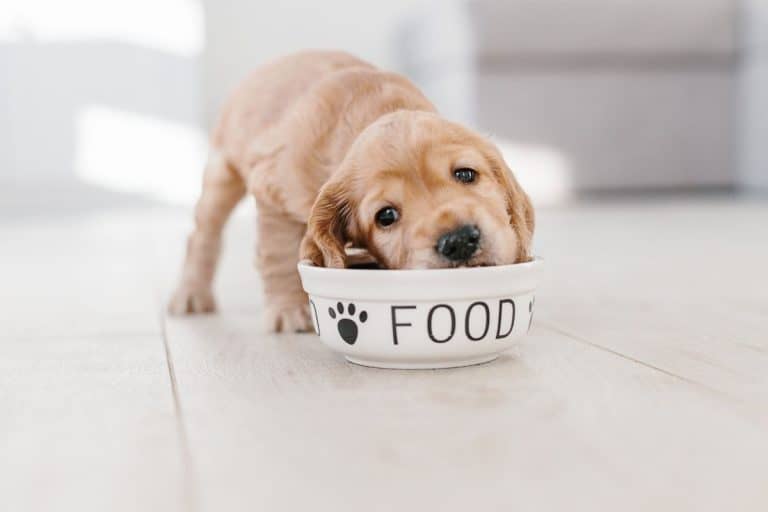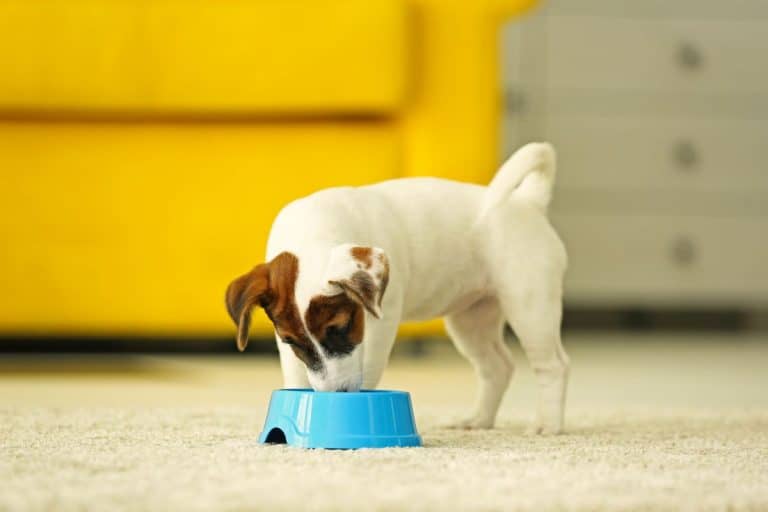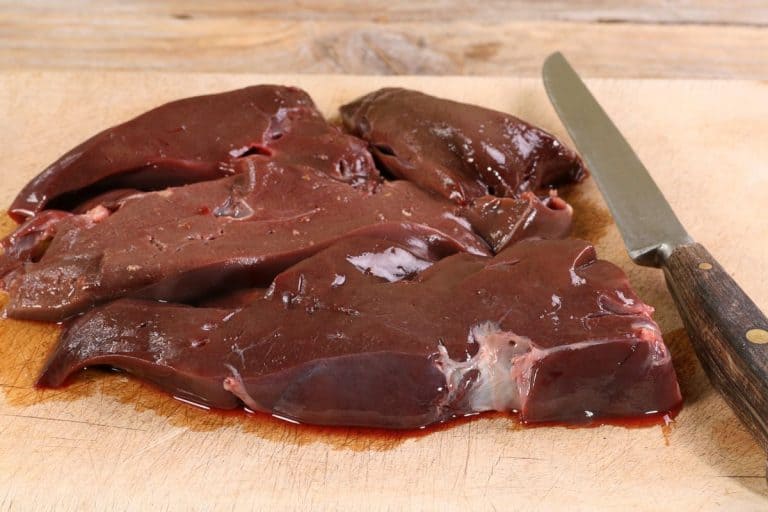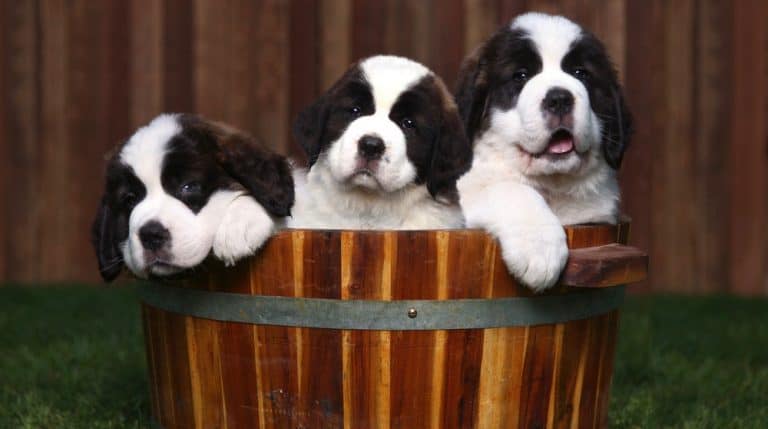How Much To Feed A Shiba Inu Puppy – Shiba Inu Feeding Chart
Shiba Inu has a distinctly fox-like appearance with erect triangular ears, lush red fur, and a sly expression.
Shiba Inu is not considered a high-energy, high-maintenance breed, therefore, you can keep them on a maintenance diet which means a diet to keep them on a normal weight.
How much to feed a Shiba Inu puppy depends on their age, lifestyle, activity level, and the type of food you are feeding them.
Giving your puppy the right amount of food will ensure that they maintain a healthy weight throughout their life.
Excess weight can lead to diseases such as diabetes, heart disease, and joint issues in your dog.
Read on to get more information about the Shiba Inu feeding chart, the best foods for Shiba puppies, how to switch to adult food, and many more.
How Much Should A Shiba Inu Puppy Eat?
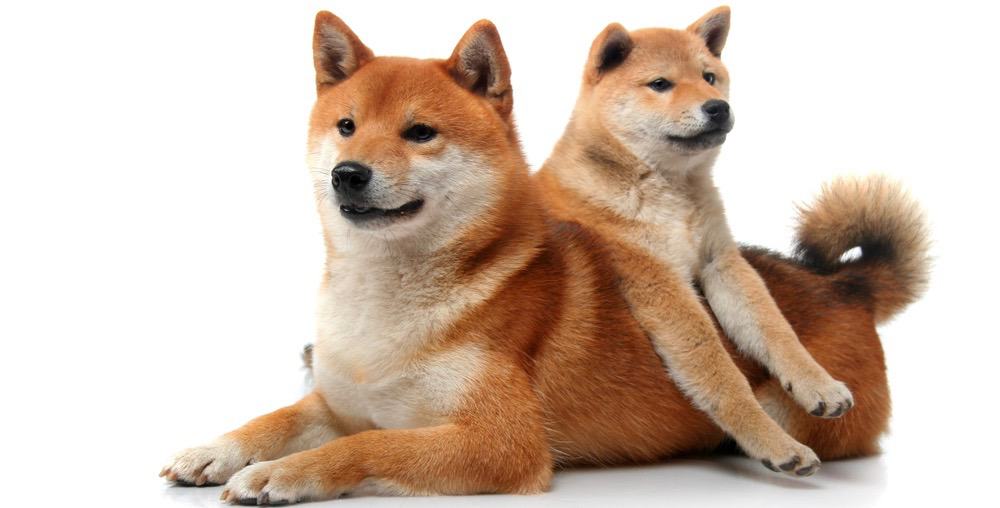
Labels in puppy food provide guidelines on how much you should feed your Shibu Inu but finding the exact amount for your puppy takes trial and error.
The amount of food to feed your puppy depends on their age, activity level, and type of food.
When a Shiba Inu is eight weeks old, they should eat ¾ cup of dry food that is moistened three times per day.
As they get older, the amount can increase gradually. When they are four months old, reduce the meals to two times per day.
Your vet should provide you with the exact amount for your puppy
Shiba Inu Feeding Chart
Since Shiba Inu are small and active dogs, they have faster metabolism compared to larger breeds.
This means that they eat more calories and burn calories faster than a bigger dog. The amount that a Shiba Inu puppy eats increases as they grow.
To know the exact number of calories your puppy needs, you need to calculate their RER (Resting Energy Requirement) and multiply it by two.
RER is calculated as 70 multiplied by the weight of the dog in kgs to the power of 0.75.
For instance, if your Shiba Inu weighs 5kg their RER is 70(5)3/4 = 234, meaning that the total number of calories your puppy should eat is around 468 calories.
The following is a Shiba Inu puppy feeding chart:
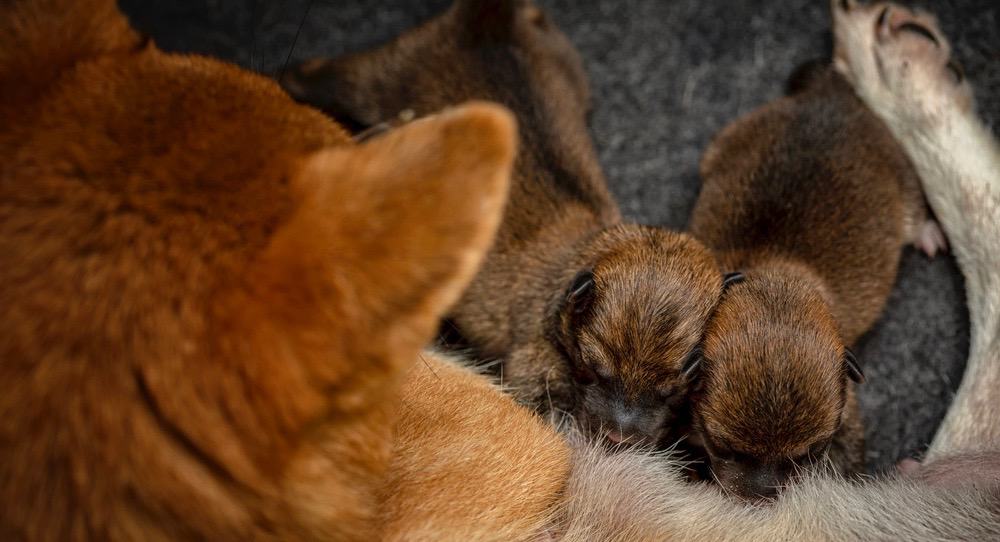
2-Week-Old Shiba Inu Puppy
At two weeks, your puppy needs nutrition from their mother’s milk as it contains all the nutrients to support their growth and development.
Puppies should be fed formula if their mother cannot produce enough milk as it has similar nutrients to ensure that they develop well.
4-Week-Old Shiba Inu Puppy
At four weeks, you can introduce solid food to your Shiba Inu because they are starting to become curious about their surroundings.
However, if they are not interested, do not force the food on them. If they are interested in the food, their bowl should be a quarter of puppy food and three-quarter water as their stomach is tiny, and the food is new to them.
6-Week-Old Shiba Inu Puppy
If you have not introduced food to your puppy, this is the right time to do so. Weaning should start now and your Shiba Inu should be fed puppy food.
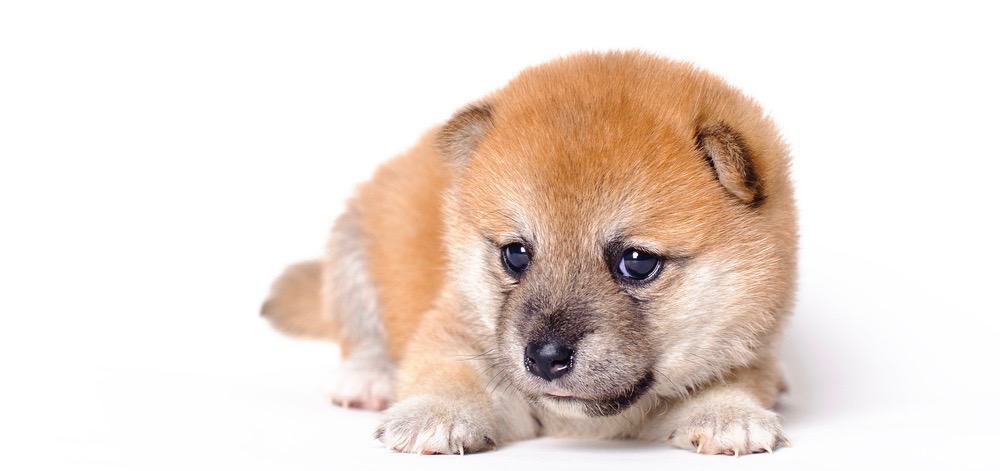
The process should be slow to avoid causing diarrhea in your puppy. The bowl should be 50% puppy food and 50% water. You can reduce the amount of water slowly until the puppy can eat only the food.
8-Week-Old Shiba Inu Puppy
At eight weeks, the puppy is ready to move to their new home. You can start establishing a feeding schedule for them to ensure that they maintain a healthy weight.
You should feed them ¾ to 1 cup of food per day divided into four mealtimes. When you take your puppy home, feed them the food they were eating at the breeder’s home.
10-Week-Old Shiba Inu Puppy
At ten weeks, your puppy experiences a growth spurt and gets hungrier, but this does not mean that you should increase the amount of food that they need. Instead continue feeding them ¾ to 1 cup of food, four times per day.
12-Week-Old Shiba Inu Puppy
At 12 weeks, the energy of your puppy increases, and you can give them slightly more food but not in excess to avoid them gaining weight.
Generally, at this age, you should feed your puppy about 1 cup of food distributed over three mealtimes.
Best Puppy Dog Food For Shiba Inu
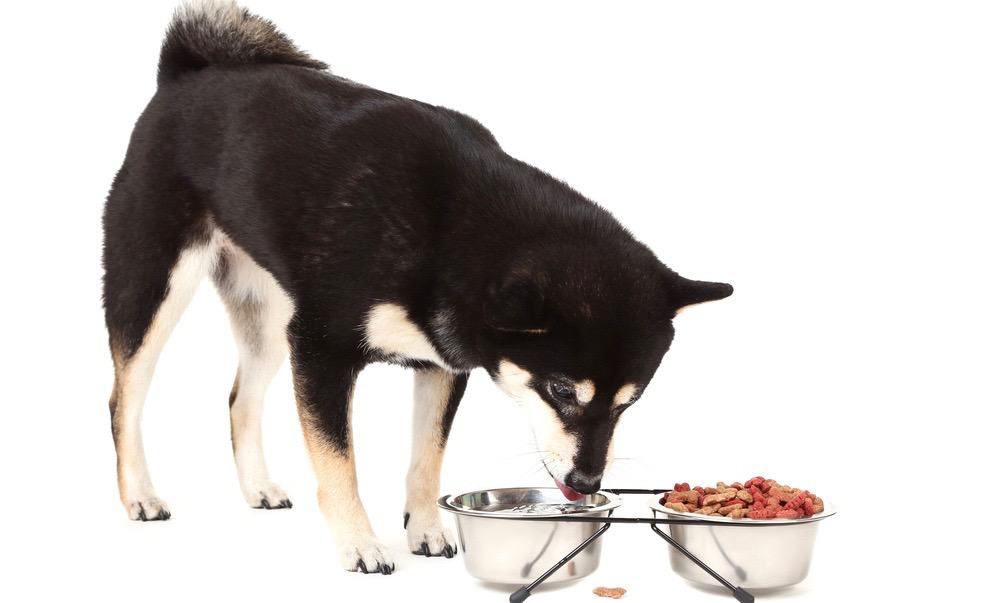
#1. Nutro Natural Choice Puppy Chicken & Brown Rice
Editor’s Choice
This dry dog food provides your puppy with the energy that they need for the long afternoon walks and fun park romps.
It is made with tasty chicken which is the first ingredient to provide a high-quality and healthy source of protein.
This food is formulated with the dietary needs of puppies in mind, including calcium, omega 3, and antioxidants to support the growth and development of your puppy.
It does not have any GMO ingredients, corn, chicken by-product, soy, or wheat.
Pros
- Supports eye and brain development.
- Supports strong joints and bones.
- Supports the immune system.
Cons
- The kibble is large for puppies.
#2. Taste Of The Wild High Prairie Puppy Formula
Runner-Up
Feeding your puppy Taste of the Wild Puppy Formula means that they are getting a balanced and complete diet.
This food is made with novel proteins such as bison and buffalo as well as sweet potatoes and peas to provide the highly digestible energy that your growing puppy needs.
The real fruits and vegetables provide natural antioxidant support while the chicory root provides prebiotic support for your dog.
The essential minerals have amino acids that maximize the absorption of nutrients providing balanced and complete nutrition to your puppy.
Pros
- High protein content to support lean muscles, joints, and bones.
- The omega fatty acids promote healthy skin and coat.
- Supports healthy digestion.
- Improves the immune system and overall wellness and health.
Cons
- Can cause constipation in some puppies.
#3. American Journey Puppy Lamb & Sweet Potato
American Journey Dog food has plenty of nutritious ingredients that support the growth of your puppy and provide the energy for their everyday adventures.
This food contains real, deboned lamb with amino acids and protein that your puppy needs to grow healthy lean muscles.
It is designed to meet the nutritional needs specific to puppies, and it has the flavor that they crave. Delicious chickpeas and sweet potatoes are included in this food to provide energy for your puppy.
The fruits and vegetables such as dried kelp, carrots, and blueberries ensure that your puppy is getting fiber, antioxidants, and phytonutrients that are beneficial to their health.
Pros
- Omega-3 and DHA support the healthy development of the eyes and brain.
- Ensures that the immune system of your puppy is strong.
- Maintains a healthy muscle mass in your puppy.
- Supports healthy coat and skin.
Cons
- Not suitable for picky eaters.
#4. Wellness Complete Health Puppy Deboned Chicken
The Wellness Complete Health provides your puppy with the energy that they need to power through the day.
This dry food is specifically designed for growing puppies as they provide full-body nutritional support.
The ingredients are carefully chosen, and they include wholesome grains and premium proteins as well as omega fatty acids, essential vitamins, glucosamine, antioxidants, and probiotics.
This food is formulated without the use of meat by-products, GMOs, artificial preservatives, or fillers, meaning that your puppy gets the right food.
Pros
- Encourages healthy brain development.
- Ensures healthy coat and skin.
- Optimizes energy levels.
- Promotes overall health and wellness.
Cons
- Causes soft stool for some puppies.
#5. Hill’s Science Diet Puppy Dog Food
This dog food provides your puppy with the specific nutrition that they need to have a healthy lifestyle.
Formulated with wholesome ingredients such as barley and savory chicken meal, this healthy recipe is balanced to meet the need of your puppy.
Made in the United States, each ingredient meets the strict requirement of nutrient content and purity that exceeds the industry standards.
This food provides your puppy with the nutrition that they need for a lifetime of happiness and health.
Pros
- DHA supports healthy eye and brain development.
- Natural ingredients are highly digestible and delicious.
- Improves the immune system.
- Does not have artificial flavors, colors, or preservatives.
Cons
- Causes loose stool in puppies.
2-Month-Old Shiba Inu Puppy Weight
At two months, a Shibu Inu puppy weighs between 4 and 9 pounds. Your puppy grows rapidly at this stage, therefore, feed them the right amount of nutritious food to support their growth.
3-Month-Old Shiba Inu Puppy Weight
At three months, your puppy should weigh between 7 and 11 pounds. Since your puppy is very active at this stage, you should feed them food with healthy carbs that provide them with the necessary energy to maintain their active lifestyle.
4-Month-Old Shiba Inu Puppy Weight
At four months, your puppy weighs between 9 and 13 pounds. You should monitor their weight and ensure that you have a feeding schedule so that your puppy does not gain excess weight or become underweight.
Understanding Shiba Inu Puppy Nutritional Needs
Shiba Inu requires high-quality puppy food from a well-known manufacturer, but you can also feed them homemade food. The main point is to ensure you achieve your puppy’s nutritional needs.
Carbohydrates are essential to sustaining the active lifestyle of a Shiba Inu. Fats help energy production. Shiba Inu requires fatty acids to keep their lovely coats healthy. Ensure the meals are rich in Omega 3 and 6.
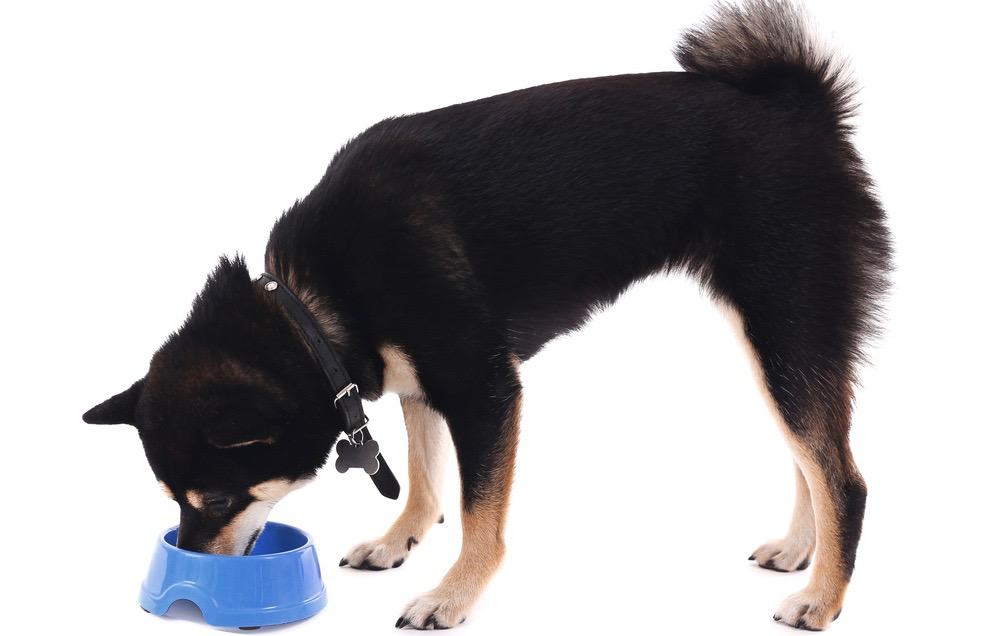
Proteins help in building muscles and renewing the body cells. The amount of protein a Shiba Inu needs depends on how bulky and big they are.
Proteins required also depend on the amount of exercise they do, physical condition, pregnancy, and age.
Vitamins and minerals are needed to keep the brains, bones, and immune system healthy.
They need vitamin A, D, and E and minerals such as Calcium, iron, potassium, zinc, iodine, magnesium, and phosphorus.
Kibble Vs Wet Food for Shiba Inu Puppies
Kibble is a popular choice for its availability, reasonable price, and convenience. When choosing kibble food for your Shiba Inu ensure they are a high-quality formula.
Check for quality animal protein and fats as well. There should be limited carbohydrates.
Wet food can also be a good choice for some owners because it tends to taste better and has decreased risk of dehydration.
When buying wet food, look for the same ingredients as it is with kibble food. However, wet food can lead to dental decay and is mostly more expensive.
How Much Do Shiba Inu Puppies Grow Each Week?
It can be difficult to know exactly how much a Shibu Inu puppy grows each week because puppies are different and not one puppy grows like another.
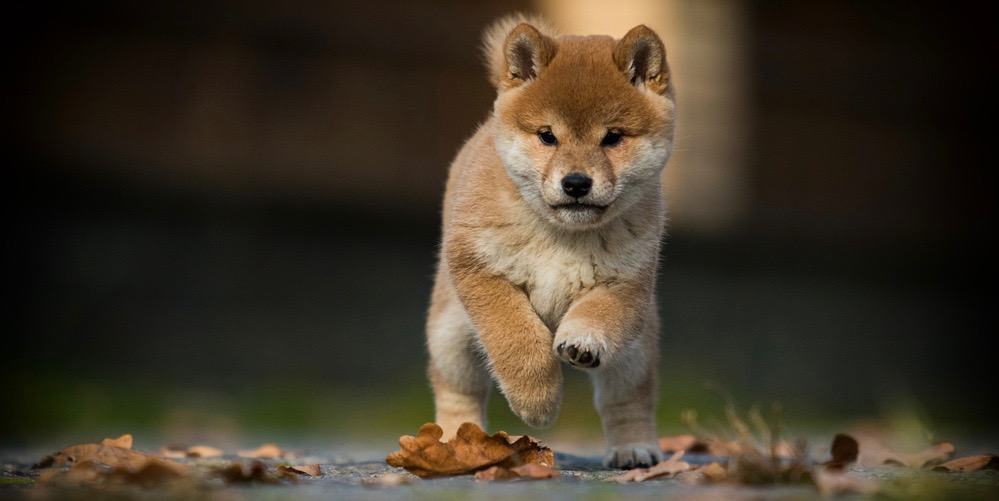
However, they experience rapid growth within the first six months of their life and grow about 0.5 pounds per week. From 6 to 12 months, the growth slows down to about 0.25 pounds per week.
Switching From Puppy Food to Adult Food
When your puppy has achieved 90% of the expected adult weight, they should shift from a growing diet to one for maintenance.
Switch your dog’s food gradually to achieve successful food transitioning. Mix a small amount of adult food with your puppy’s favorite formula then slowly increase the amount over a week or two while decreasing the amount of puppy food.
What If My Shiba Inu Won’t Eat?
It can be concerning when your dog doesn’t eat like usual. Illnesses, medications, owner absence, food preferences, time of the day, and social and emotional issues can make your dog stop eating.
If your dog stops eating and resumes days later, then there is no need to worry.
If their appetite does not return, take them to the vet for evaluation especially if they vomit or have diarrhea.
Your dog may also not eat because you recently changed their diet, and some dogs only eat during specific times.
Your Shiba Inu may not also eat because you are not around and will quickly finish their meal when you are around.
Therefore, try to learn and observe any changes in your dog to help you know how best to help them but most importantly, consult a vet to get the best advice.
Can you Free Feed a Shiba Inu Puppy?
Free feeding is leaving a bowl of food for your dog all the time, where they have constant access to food and eat as much as they can.
Free feeding is convenient especially if you are not home often and have a busy schedule.
However, free feeding can lead to obesity. It limits you to only dry foods and leads to an inability to monitor a puppy’s eating habits.
Therefore, scheduled meals are better for keeping your puppy’s weight in check.
Should you feed a Shiba Inu Puppy, puppy Supplements?
If your puppy has medical needs, supplements can be a great way to help them live a healthy, active, and happy lifestyle.
however, if you are feeding your puppy a healthy and balanced diet, they do not need supplements.
Do not give your puppy extra vitamins with the idea that you want to create a super healthy dog.
Most dogs need supplements when they are much older and not when young. In addition, follow your veterinarian’s directions on how often and how many supplements to give to your puppy.
How Much Water Should a Shiba Inu Puppy Drink?
Puppies are always moving and require plenty of food and water to stay healthy. The amount of water a puppy needs depend on its size and activity level. Dehydration and overhydration are not good for puppies.
Young puppies get hydration from the mom’s milk. When they start feeding on solid food, they will need fresh water to drink.
Growing puppies require ½ a cup of water every couple of hours according to their size and age. Therefore, monitor them to ensure they are drinking enough water.
When the puppy is out of the weaning phase and growing towards adulthood, the amount of water required decreases.

